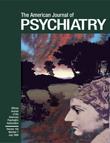Anniversary Reactions in Gulf War Veterans: A Follow-Up Inquiry 6 Years After the War
Abstract
OBJECTIVE: The goal of this study was to assess the occurrence of anniversary reactions in Gulf War veterans 6 years after the conclusion of the war. METHOD: Subjects were administered questionnaires and asked to identify specific months of best and worst functioning and months of least or most symptoms of posttraumatic stress disorder (PTSD) for the 12 months before the study. Months of negative experiences were compared with previously documented dates of exposure to traumatic events during the war. Similar reports were also obtained from the veterans’ spouses in order to assess corroborative evidence for the occurrence of anniversary reactions. RESULTS: Anniversary reactions occurred with a frequency greater than chance and most often in individuals exposed to a greater number of traumatic events. Overall, spouse reports matched the veterans’ reports of anniversary reactions. In addition, spouses identified anniversary reactions that were not endorsed by their veterans. CONCLUSIONS: These data suggest that anniversary reactions occur in numbers greater than those expected by chance, are correlated to the occurrence of traumatic events, and may be a part of the syndrome of PTSD.



